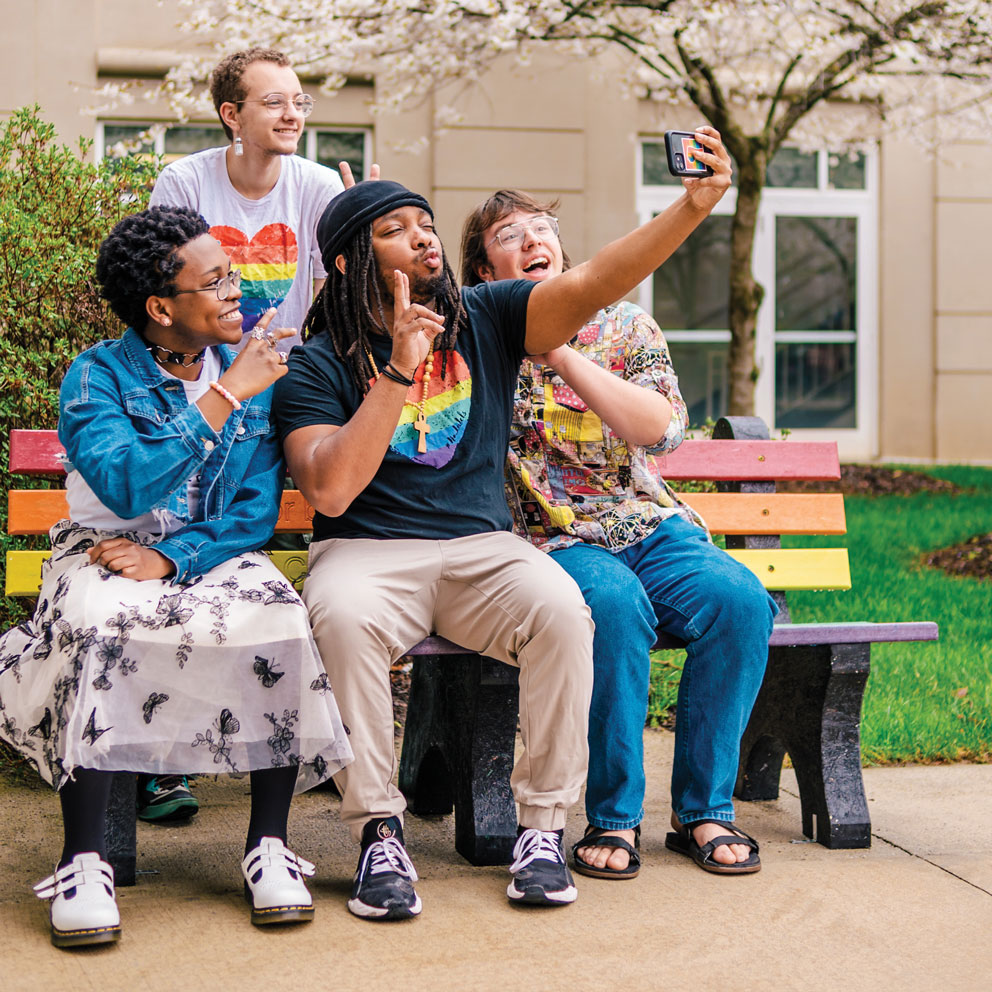
HOW DOES A GROUP CALLED NO LABELS describe its mission? “To provide a safe space for queer people of color, allies, and advocates through volunteerism, advocacy, educational programming, collaboration, and inclusion.”
“No Labels was created in 2017 by an African American queer student because they felt there wasn’t a place for queer people of color, specifically African American voices, to be heard,” explains Isaiah King ’23, the club’s current president.
Today, this group includes students from many backgrounds. It hosts professional networking sessions and game nights. Last fall, the group organized a Second Chance Prom. “We targeted queer students who didn’t get to go to prom with their preferred partners. We also targeted people who lost their prom due to COVID,” says King.
In addition to events, No Labels moves conversations about LGBTQ+ issues forward, making about half of its sessions educational. “We’ll talk about gender around the world. We’ll talk about sexual education. We’ll also discuss multiculturalism and how it relates to the LGBTQ+ community,” says King.
Some of the group’s concerns show a difference between today’s communities and UNCG’s LGBTQ+ organizations of the past. “Back in the eighties, there was this real sense of collective identity around being gay,” says Jay Poole ’84, ’99 MSW, ’09 PhD. “Now I think people are looking at the diversity of identities under the LGBTQ+ umbrella.”
For me, I’m Black and I’m bisexual. I’m not only going to experience racism or homophobia. I’m going to experience racism and homophobia together.
–Isaiah King ’23, No Labels president
People who are from more than one minority community can face stiff challenges. Effects of discrimination tend to be similar among marginalized groups. Systems that strengthen racism, homophobia, and sexism all depend on disdain and hatred for personal attributes that people are born into, King explains.
“For me, I’m Black and I’m bisexual,” he says. “I’m not only going to experience racism or homophobia. I’m going to experience racism and homophobia together.”
Part of No Labels’ mission is to provide a safe space for students to thrive. During college, many students grow, change, and try to follow the advice “Be yourself.”
“I think we have a responsibility to every single student that they can authentically be themselves,” says Dr. Jennifer Whitney, director of The Counseling Center at UNCG. “I can assert my authenticity, but my authenticity doesn’t stop you from being yourself.”
King notes that all members of the LGBTQ+ community as well as allies are welcome to partake in No Labels meetings and events.
By Mercer Bufter ’11 MA
Photography by Sean Norona ’12. Clockwise from top: Lukas Tucker, Parker Boike, Isaiah King, and Juno Rose.